- Home
- Daily Meditation
Jacob resists Tragedy
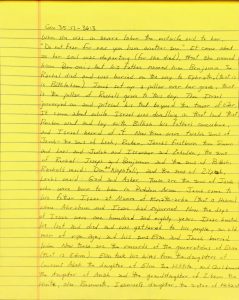
Gen 35:17-36:3
Jacob is losing. He feels the loss of value and the increase of disdain. Beloved Rachel has died giving birth to Benjamin. He will see her no more. It is utter grief. Bittersweet, Jacobs resisted tragedy, refused the name “Ben-oni” and proclaimed his new son, “Benjamin” – the strength of his right hand.
His first born has done the unspeakable. Reuben is no longer counted among the dependable and faithful sons. As much as the offense injures Jacob, the grievousness of an irreparably broken relationship is the loss of trust.
What consoles the father of a son whose reputation has been ruined? It’s not the face lost, it’s the grief at what this portends for his son’s ability to create and contribute value in a world of exchange. Abraham and Isaac’s reputation had sustained them in a weary and hostile land. Now Isaac is gone. Who will lead this family after Jacob? Who will enter into the promise?
A good name is more desirable than great riches.
God at Bethel
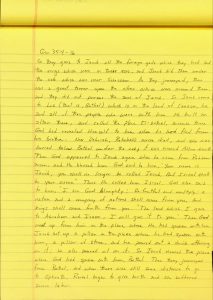
Gen 35:4-16
The news is out. Schechem is destroyed. The devastation and brutality has the locals afraid of the sons of Jacob. Israel must move on. Back to God again, leave the foreign gods behind.
It’s interesting how it works. I get caught up in the urgent and end up spending days, or weeks, or even longer apart from the things that really matter; from relating to God. My engagement with the day-to-day leads where it wills. Crises shows up and now I want God. I become aware of my need for God.
And God is faithful. I put away the stuff that’s offensive and hope that He doesn’t notice that I hid it under a tree – somewhere. He accepts. He remembers His promises. He loves.
You are my revival. Make haste to help me.
Destruction of Schechem
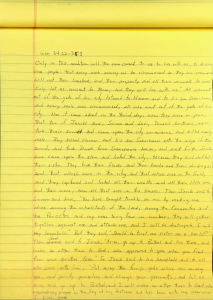
Gen 34:22-35:3
The rape of Dinah: a great injustice is somehow ameliorated by the destruction of scores of men slain in a terrible, betraying ruse. The enslavement of the women and children, the looting of their possessions – this isn’t the way of Jacob, a man of dreams and process and words.
He’s frustrated. So he goes back to where it started, to Bethel where he first encountered God. But damage has been done. Simeon and Levi will never again have his trust. The sons of Leah are suspect. Although the rift not yet visible, the stress of the tectonic competition is building.
It’s the going back that has my attention. Like a pilgrim on the via Francigina, in this going back Jacob, seeks to reconnect to the Lord as his first love.
But like all pilgrims eventually discover; it’s never about the destination. It is never about the destination.
Terms of the Deal
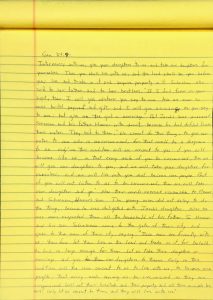
Gen 34:-21
“Now their words seemed reasonable to Hamor and Schechem”… It is the brothers who convince Schechem and his father, the king, to not only circumcise themselves, but in a test of their leadership, they must persuade all the men of their city to do the same. He must have been a persuasive talker.
Van Gogh is said to have cut off his ear for love, but even he didn’t convince the villagers of his home town to do the same. Schechem, the son, is deeply committed. He desires Dinah this much.
The Proverbs say there are things that are simply too amazing to understand. One of these is the way of a man with a young woman.
Hard to understand; but on the other hand, I suppose many of us have been there.
Dinah’s Rape

Gen 33:15-34:8
Schechem took from Dinah her innocence and with it, everything she hoped her life would be. He had no idea that this decision would cost him his life.
The sons of Leah, like any son of an unloved wife, will fight for their place in this world. He is offended for his mother, or his sister, or himself and justifies every kind of evil. He will take whatever he sees fit. The sons of Leah feel as though they are owed. They will not be silent.
Something has happened that has unnaturally empowered these brothers against Jacob. The result is a tragic and horrific irony of rage and lust.
Like an oxen to slaughter, the man with no self-control.
Esau receives Jacob
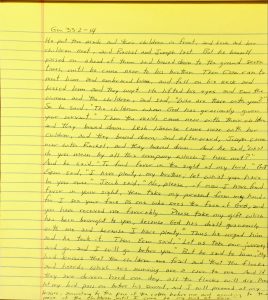
Gen 33:2-14
Implicit forgiveness.
Esau received Jacob. His anger, whether appeased by Jacob’s gifts, or having faded over the decades of separation, was quenched. Esau, who had been seriously wronged, has forgiven Jacob.
But Jacob isn’t so sure he can trust in this. He is happy that Esau has dropped the grudge. But he doesn’t want to live near him either. In this sense, the two are not really reconciled. Esau forgave but Jacob is reluctant, aloof and independent. The arc of the Genesis narrative has yet to achieve true reconciliation, and awaits the possibility of an authentic community based on this way of being.
The blessing of unity has eluded these brothers and will have to wait on another generation.
O come Emmanuel.
Jacob wrestles God
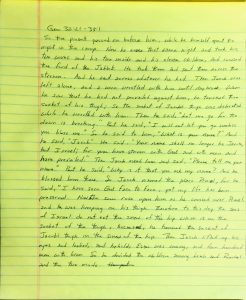
Gen 32:21-33:1
At the Jabbok, alone having made all the preparations for the looming encounter with Esau, Jacob wrestles with God. He refuses to let go.
Jacob wronged Esau. Esau has a force with him that can destroy Jacob and all he has. No human can protect Jacob and his family. He is totally, existentially vulnerable.
In the darkness he clings. Despite injury he will not let go. For his effort, he receives a new name. No longer Jacob – “grabber”. Now he is Israel – “one who prevails with God.”
No one who prevails with God seems to escape this darkness.
Jacob’s Gift
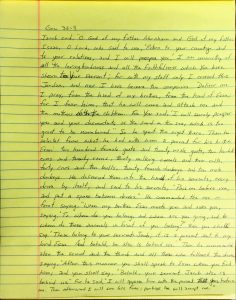
Gen 32:9-20
This prayer for survival – how many times has a human being desperately cried out in this way? “Save me my God.”
“O Lord make haste to help me.”
For me at least, it has happened a few times. Like a Jonathan Edward’s sermon; the utter awareness of my complete dependence on Him is terrifying. But despite its desperation, this is also a hopeful place. A place of reality.
But even here, there is work to be done in this world. Words in the air aren’t going to keep Esau from cutting off my head.
The answer in prayer is a gift. Jacob, grabber than you are, give a gift. And so we say:
“A gift in secret pacifieth anger, And a present in the bosom strong wrath.”
It’s funny how often this stuff really works.
Laban contends with Jacob
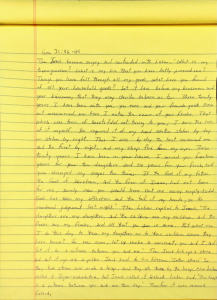
Gen 31:36-49
Jacob becomes indignant with Laban and pours out his complaint. They agree to make a covenant.
It is astounding the way one person can see another as only a means to an end. Laban could not see Jacob as a person – nor his daughters for that matter. Everything that they did, from their hard work to their raising of children, Laban claimed as his own property.
The unmistakable effect is to drive those people out of his life who might have been the joy and satisfaction of his old age. Objectification of the other seems to breed a response of objectification. We do each other this untoward favor.
It was ordained. The separation had to come, as it often does. Jacob was, after all, destined to return to the land of Abraham and Isaac.
But the sneaking escape, the angry hot-pursuit, the implicit threats; these things were never necessary and they injured everyone involved.
“Give us eyes to see” – the cry feels more urgent this morning.
Laban overtakes Jacob
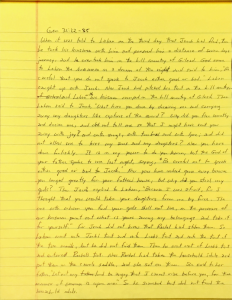
Gen 31:22-35
Rachel remains the enigmatic one here. She steals her father’s household idols – most likely marketable works of art. Was it the money? Was it to get back at a father who had betrayed her?
The resolution to this is that the relationship will remain unresolved. Rachel not only stole, but also deceived her father to hide her misdeed. The light is glaring on Rachel. Petty larceny could have cost Jacob everything – and Rachel her life. She will never see her father again. The wound will remain for the rest of her life.
The temptation to sin always vests in the moment when the consideration of consequences is nowhere to be found. It is often said that we all known this. We call it justification. Yet strangely in the moment, sin never makes a bit of sense and simultaneously makes all the sense in the world.
